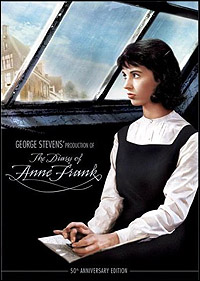
*
John Barrymore (1882-1942) was arguably the successor to Edwin Booth's mantle of the Greatest Actor of His Time. His time, stage-wise, began in 1904 or so. After 12 years of comedy and light drama, he lived up to his promise with a string of strong dramatic performances beginning with Justice (in 1916) and — starring opposite brother Lionel — Peter Ibbetson (in 1917) and The Jest (in 1919). In the early 1920s, he essayed both Richard III and Hamlet, the latter in a record-breaking engagement. This was the end of it, stage-wise. Barrymore had been supplementing his income in silent films since 1913; just after turning 40 in 1922, he more or less exchanged the stage for a less grueling and more remunerative alcohol-lubricated life on the screen. (See The Royal Family, coming from the Manhattan Theatre Club in October, for a fictionalized account.)
We cannot ever expect to see Barrymore-the-stage-actor, needless to say, and there are few people in circulation who can still attest to his brilliance. A worn-and-weathered Barrymore did appear occasionally on stage in the 1930s, propped up by creditors, newly-minted brides and bottles, but these were not performances for the ages; and glimpses of his grandeur can be seen in his later films, most notably "Svengali," "Dinner at Eight" and "Twentieth Century." But this was the mature Barrymore, not the brilliant actor who stood second to the Great Edwin.
Well, here comes a set of DVDs that gives us Barrymore in his prime. Silent films, sure, without any indication of that voice. But that profile is there, as is the almost mesmerizing intensity of the acting. The John Barrymore Collection [Kino International] gives us four of his major silent vehicles, starting with "Dr. Jekyll & Mr. Hyde" from 1920. This was made just after "The Jest," when Barrymore was at the height of his art and fame. (The film actually contains about three seconds-worth of "The Jest" in an Italianate flashback, with Barrymore in his stage costume and wig). The "Jekyll" tale is well known, as it was even in 1920; there have been some two dozen film versions, plus who knows how many offshoots and pastiches. (One of them, a Stan Laurel short called "Dr. Pyckle & Mr. Pryde," is included amongst the bonuses.) Robt. Lewis Stephenson's tale goes back even further, of course, to 1886. Somebody ought to make a good musical version of this one day, don't you think? On second thought, maybe not.
Next in the box is Barrymore's 1922 rendition of William Gillette's stage version of "Sherlock Holmes," which might well have had almost as many lives as "Jekyll & Hyde." (Barrymore's Holmes is not the best of them.) This film, long thought to be lost, comes to us in an impressive remastering by the George Eastman House. Hidden away are the film debuts of two fine light comedians, Roland Young and William Powell. "Tempest" is one of those Russian Revolution epics, with John B. and leading lady Camilla Horn "at the mercy of a sweeping tide of fate." The cover shows a photo of a shirtless Barrymore glaring at the Czarina, who is whipping him. Hmmm. Better by far is "The Beloved Rogue," which is not an autobiography of Barrymore but a fictionalized tale of the real-life, 15th century poetical rapscallion Francois Villon. Villon has gone out of fashion — he is chiefly remembered for his poem that contains the phrase which was translated into English as "where are the snows of yesteryear" — but he was well known in the first third of the 20th century thanks to the 1901 play If I Were King. A perennial favorite, it was successfully filmed in 1920. What's more, the Broadway musical adaptation, The Vagabond King, was a major success of the 1925-26 season (including Rudolph Friml's song hit "Only a Rose"). Playing upon the quarter-century of success of If I Were King and the then-current musical smash, "The Beloved Rogue" borrowed the Villon character and inserted him into a new, swashbuckling story which allowed Barrymore to demonstrate his prowess, athletic and otherwise. Kino has unearthed an interesting bonus: Orson Welles introducing the film, circa 1971.
All but "Sherlock Holmes" have previously been released on DVD, so some Barrymore fans might already have one or more. But this four-disc set certainly gives us a chance to see (if not hear) Barrymore in his heyday, before gin and rum and destiny played funny tricks.
 |
(Steven Suskin is author of "The Sound of Broadway Music: A Book of Orchestrators and Orchestrations"as well as "Second Act Trouble," "Show Tunes" and the "Opening Night on Broadway" books.)










